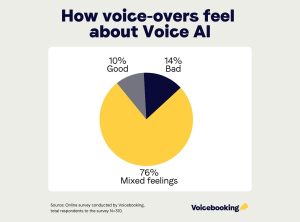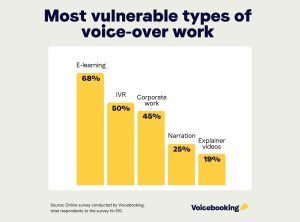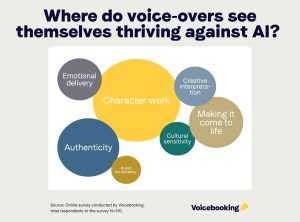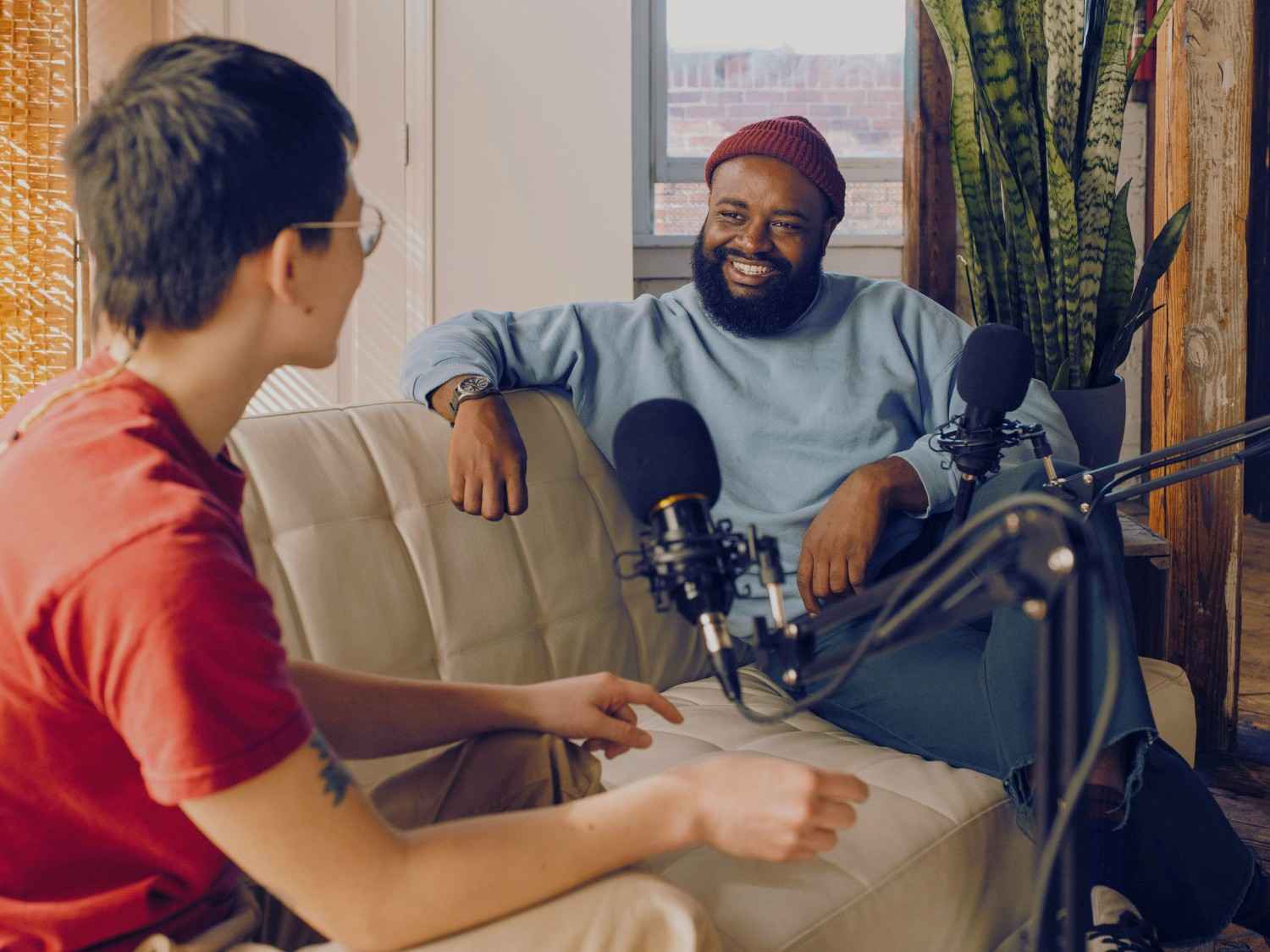The rise of voice AI has set the voice-over industry in motion. Research by Voicebooking.com, with input from 310 voice talents, shows that many are feeling the impact. But a clear common thread emerges: “Those who think along with the client can still make a difference,” is the sentiment.
How good is voice AI, really?
Javier Peña, is a Spanish voice actor who settled in London in the 1990s. He is mainly hired for localisation work — from e-learning and online videos to gaming. He’s been experimenting with voice AI for years and has seen the technology improve steadily.
He sees voice-over work as a craft built on experience. “What strikes me,” he says, “is that in the voice-over world, the focus is often on what AI can’t do. A truly good voice-over can get a 30-minute script right faster than a producer can manage with voice AI. But let’s be honest — some voice-overs at the lower end of the market don’t even reach the quality level of AI.”
AI as opportunity, not threat
That AI is having an impact is undeniable. But the key question isn’t whether AI will play a role, but how voice-overs position themselves in a market where technology plays an ever-growing part.
‘The future isn’t black and white. It calls for a proactive approach from professionals in the industry,’ says Jente Kater, founder and CEO of Voicebooking. ‘The technology is strong when it comes to standard jobs, but it still lacks the ability to truly bring a script to life. As a voice-over, you’ll need to look at where you can really make a difference.’
Barbara Karel, an experienced voice-over, doesn’t see AI as an enemy, but as a tool. ‘You can’t just stay hidden in your little grey bubble. AI is here, and it also offers opportunities. I even had my own AI voice developed so I could experiment with new possibilities.’ According to her, it’s not just about the technology, but about the ability to understand the client and work together.
Karel hasn’t seen a drop in her income yet, and feels there’s a bit of scaremongering going on. ‘I think the income loss some voice-overs are seeing is also partly because so many new voice-overs have entered the market in recent years. These days, anyone who feels like it can start working from home.’
She’s not naïve, though. There is the fear that someone might digitise and steal her voice. ‘But of course, you can address that in your general terms and conditions.’
Used without permission
That fear isn’t entirely unfounded. Voice artist Greg Marston, English voice over from London, discovered his voice being sold on an AI voice marketplace.
It turned out his voice had been purchased from IBM. Twenty years ago, he had done a voice-over job for IBM, and the company had presumably used that material to train an AI voice with their supercomputer Watson.
For legal reasons, Marston can no longer speak publicly about the case. But he previously told his story to British broadcaster Channel 4, where he said that aside from possible income loss, his biggest fear was the idea that his voice could be used to say anything at all — without him having any control over it.
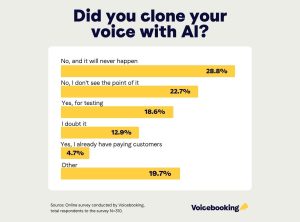
Doomsayers vs. realists
Remy Gieling, founder of AI.nl and the Automation Group, believes voice-overs should prepare for a coming storm.
“I was recently in the U.S. visiting Bland AI, a company that automates customer service over the phone. The quality of their AI bots is now almost indistinguishable from a human voice. As a result, two thousand customer service jobs are disappearing every month,” says Gieling.
Voice-over work is, of course, different — but the voice tech overlaps in key ways.
“You’ll see jobs disappear in the voice-over world too,” Gieling predicts. “The truly talented voices will always find work, but the rest will have to take a hard look at how they can still differentiate themselves. Doing nothing and hoping for the best has never been a good strategy.”
What makes a voice-over irreplaceable?
Kater agrees. “The difference between a standard AI voice and a professional voice-over lies in the details. Sometimes AI is good enough. But with many projects, what really matters is: Can this voice tell my story in a way that sparks something in the listener’s mind? That’s where a voice-over can truly make a difference.”
Even though the market is shifting, there’s still room for professional voice talents who invest in their craft and build strong client relationships.
“At Voicebooking, we try to separate the wheat from the chaff,” says Kater. “Just being good isn’t enough anymore. You’ve got to go the extra mile. How can you keep getting better at what you do? Does your home studio deliver true studio-quality sound? Do you understand what content creators are listening for today? And how client-friendly are you in your approach?”
“There are over a million people on LinkedIn now calling themselves ‘voice-over’. If you want to stand out — this is the time.”


